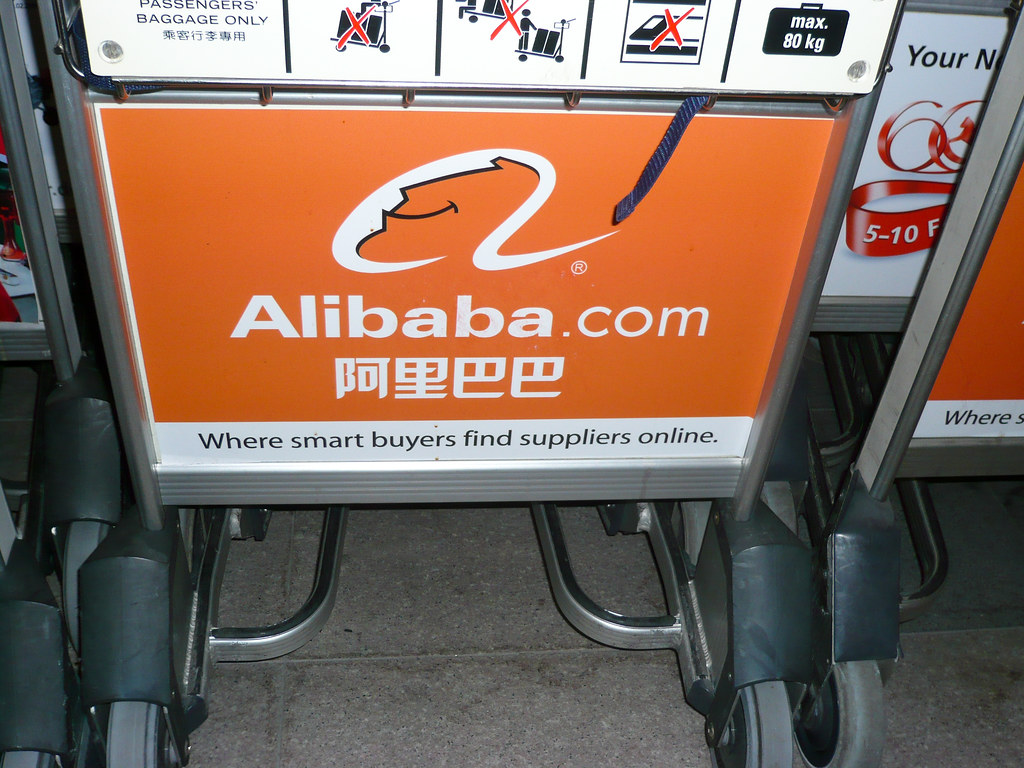In today’s interconnected world, e-commerce has become an integral part of our daily lives. With giants like Alibaba dominating the global market, it is crucial for investors to stay informed about the competition and potential investment opportunities.
In this article, we will explore Alibaba’s rise to power and its impact on the U.S. market, as well as analyze its key competitors in the ever-changing landscape of e-commerce.
The Rise of Alibaba: A Global E-commerce Giant
Alibaba Group Holding Limited, founded by Jack Ma in 1999, has grown from a small business-to-business platform into a global e-commerce conglomerate. With platforms like Taobao, Tmall, and AliExpress, Alibaba dominates China’s online retail market with over 800 million active users.
Expanding into emerging markets and forging strategic partnerships, Alibaba continues to solidify its position as one of the largest companies worldwide. Through innovation and a relentless commitment to customer satisfaction, Alibaba’s rise as a global e-commerce giant shows no signs of slowing down.
Alibaba’s Impact on the U.S. Market
Alibaba’s entrance into the U.S. market in 2014 through its record-breaking IPO on the NYSE disrupted the traditional e-commerce landscape. By offering a direct link to Chinese manufacturers, Alibaba provided American consumers with access to a wider variety of products at competitive prices, challenging established players like Amazon and eBay.
Additionally, strategic partnerships with American companies such as Walmart expanded Alibaba’s reach and allowed American businesses to tap into China’s consumer market. Overall, Alibaba’s impact goes beyond commerce, fostering cultural exchange and shaping the future of global trade.
| Heading | Content |
|---|---|
| Overview of Alibaba’s entrance into the U.S. | – Made a significant entrance in 2014 through a record-breaking IPO. – Enabled American investors to participate directly. – Disrupted the traditional e-commerce landscape in the U.S. |
| Discussion on how Alibaba disrupted the traditional e-commerce landscape in the U.S. | – Offered a direct link to Chinese manufacturers for American consumers. – Challenged established players like Amazon and eBay. – Forced competitors to reevaluate strategies and adapt. |
| Examination of Alibaba’s partnerships with American companies | – Formed strategic partnerships with American companies like Walmart. – Expanded Alibaba’s reach and provided access to China’s consumer market. – Enabled American businesses to tap into China’s growing middle class population. |
Key Takeaways from Amazon’s Dominance
Amazon has emerged as a global leader in e-commerce, competing directly with Alibaba. With a vast product selection, efficient logistics network, and innovative technologies like Amazon Prime and Alexa, the company has successfully expanded into international markets.
While Amazon dominates in the United States, Alibaba maintains its stronghold in China. Both companies have ventured into other sectors beyond e-commerce, such as cloud computing. Overall, Amazon’s dominance in global e-commerce is driven by its extensive offerings, efficient infrastructure, and relentless pursuit of growth and innovation.
Other Domestic Competitors Challenging Alibaba
In addition to international players like Amazon, Alibaba faces competition from domestic challengers such as eBay and Walmart. eBay, known for its auction-style marketplace, maintains relevance through a loyal customer base and strong brand recognition.
However, it faces limitations in scaling and competing with Alibaba’s vast product selection and logistics capabilities. To stay relevant, eBay focuses on partnerships and expanding beyond auctions.
Walmart, a US retail giant, recognizes the threat from e-commerce players like Amazon and Alibaba. To compete effectively, Walmart invests heavily in its online platform, expands its product range, and enhances logistics through strategic acquisitions.
Leveraging its physical store network, Walmart aims to provide customers with a seamless omnichannel shopping experience.
Alibaba’s dominance is challenged by these competitors who bring their strengths and weaknesses to the table. As the e-commerce landscape evolves, these domestic players shape the future of online retail by offering more choices and improved shopping experiences for consumers.
The Future Outlook: Challenges and Opportunities
In the rapidly evolving e-commerce industry, Alibaba and its competitors face both challenges and opportunities in the U.S. market. Regulatory hurdles related to data privacy, intellectual property rights, and antitrust regulations pose challenges for these companies.
Additionally, maintaining consumer trust is crucial amidst increasing incidents of data breaches.
However, there are growth opportunities as well. Emerging technologies like blockchain and AI have the potential to revolutionize various aspects of e-commerce operations such as supply chain management and fraud prevention.
Moreover, expanding into new markets or sectors such as cloud computing services and digital payments can open up new revenue streams.
In summary, navigating through regulatory challenges while ensuring consumer trust is essential for companies like Alibaba in the U.S. market. However, embracing emerging technologies and exploring new sectors can lead to growth opportunities in an ever-evolving industry.
Conclusion: The Ever-Changing Landscape of E-commerce
[lyte id=’RwQmgIw_Tok’]





